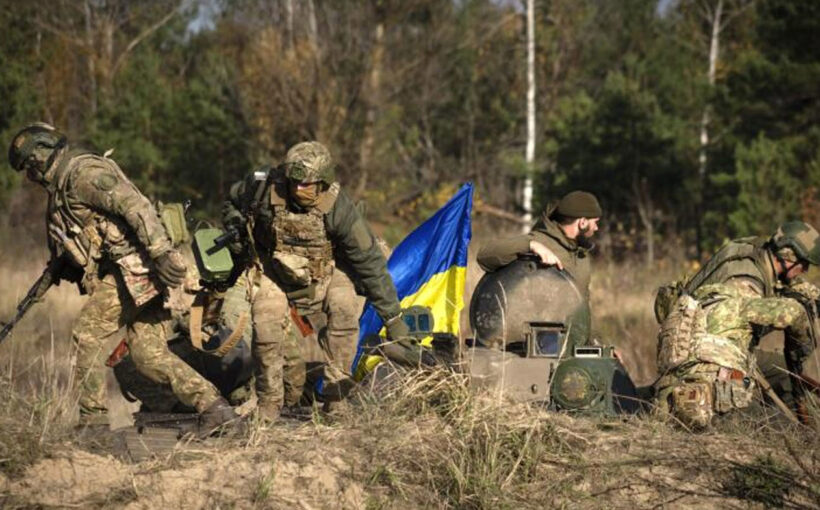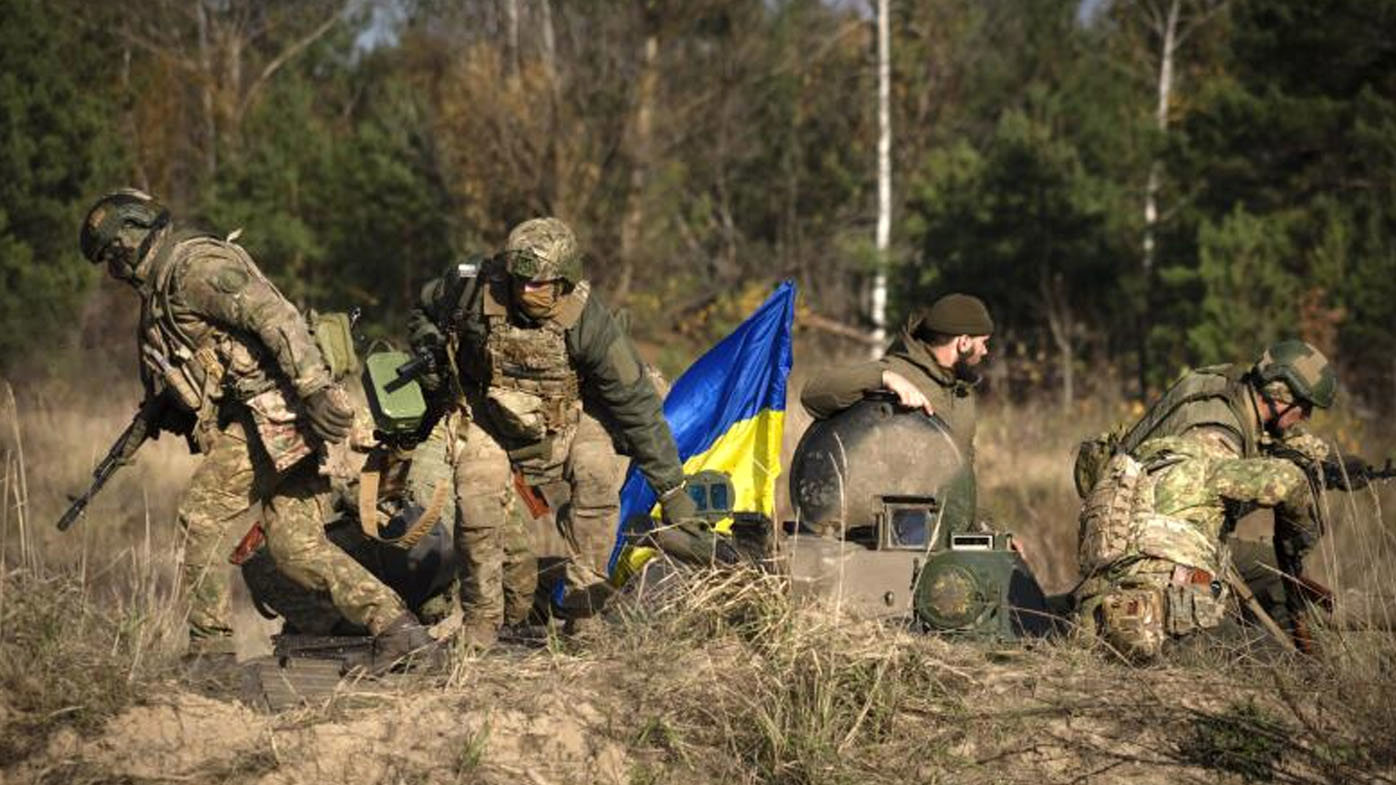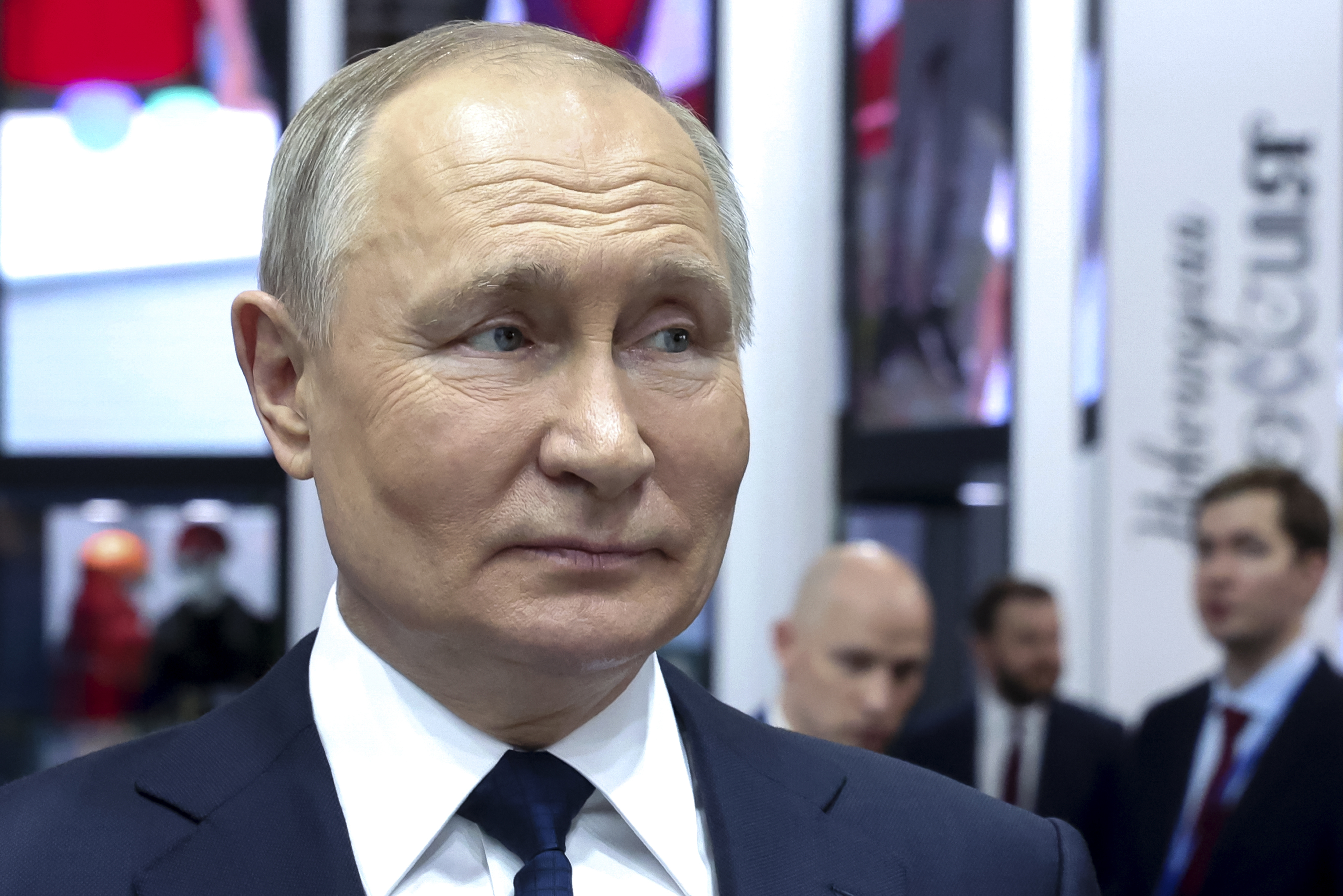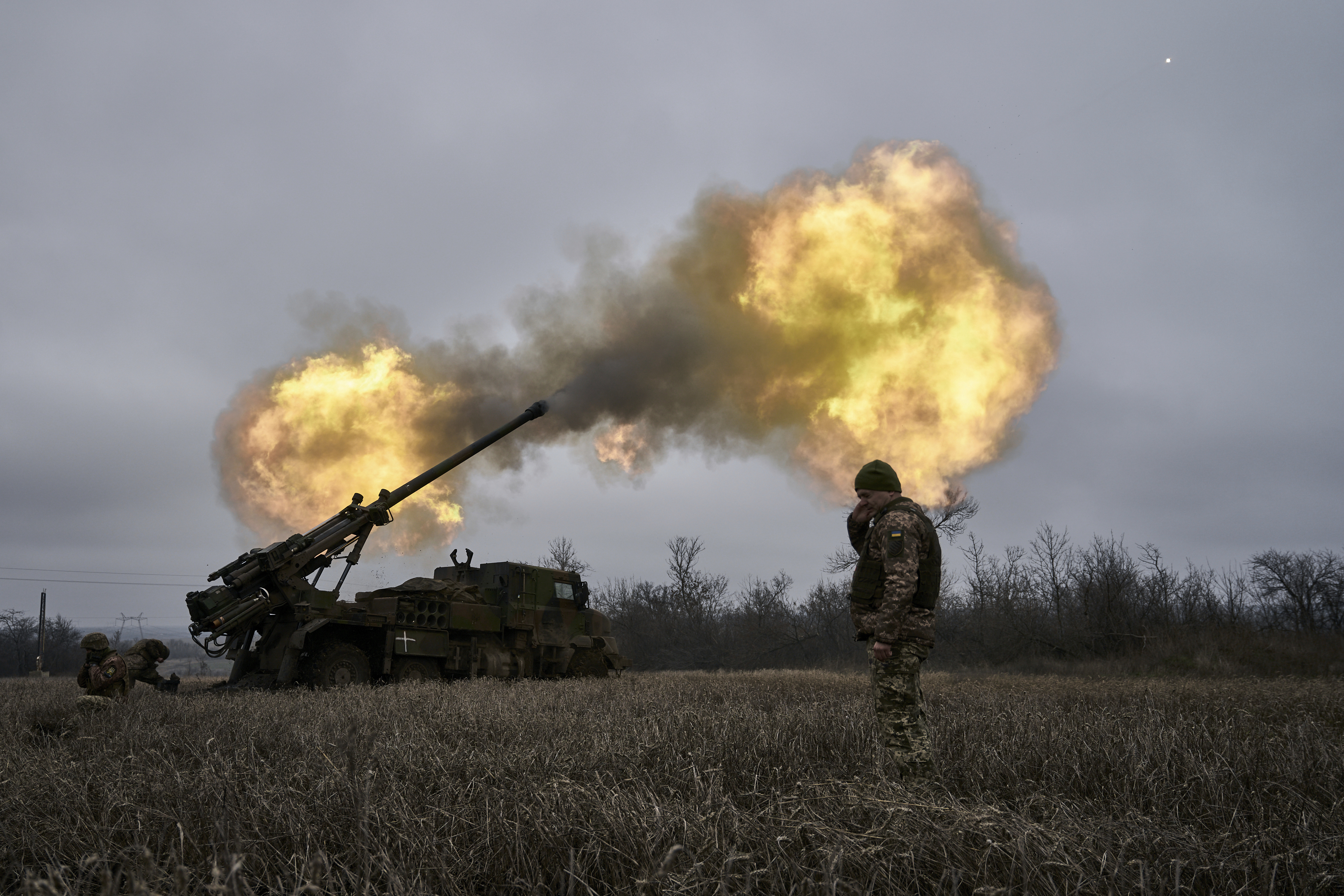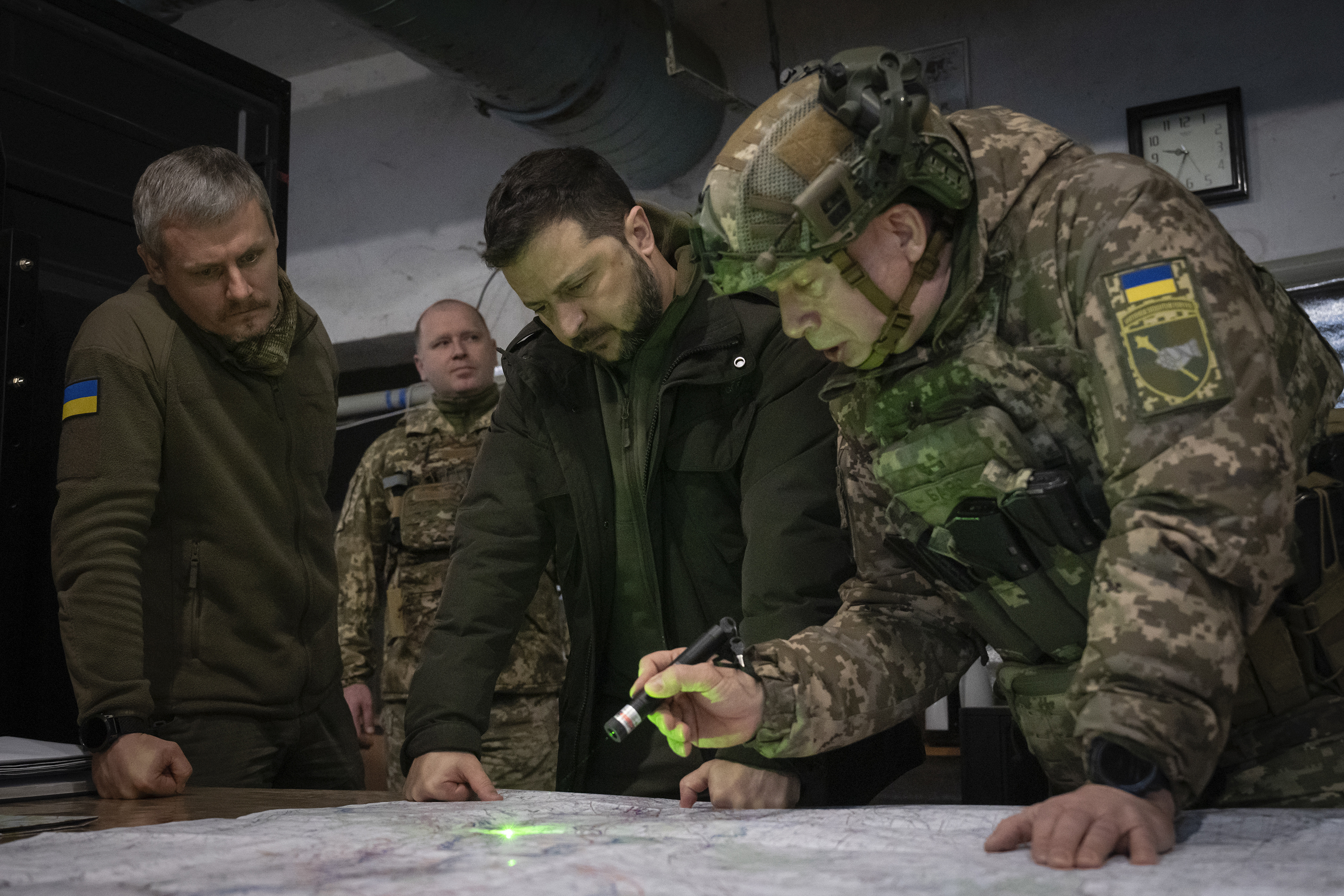Two years after the Ukraine war began, the chance of a peace deal seems remote as both Kyiv and Moscow become resigned to a long conflict.
When Russian President Vladimir Putin launched the invasion of Ukraine on February 24, 2022, his military steamroller was expected to seize control of his within days.
But despite Ukraine being outgunned and outnumbered, it didn't turn out that way.
READ MORE: Spanish police suspect bullet-riddled body may be Russian who defected with army helicopter
A combination of gritty Ukrainian resistance backed by Western-supplied advanced weaponry, the Russian army's battlefield blunders and its disastrous logistical breakdown ended hopes of a swift victory for the Kremlin.
Fast forward two years and Putin and Ukraine President Volodymyr Zelenskyy have little motivation to start meaningful moves for peace, with the outcome of the conflict set to decide their political and even personal survival.
"There is simply no incentive for either of them to stop fighting," Associate Professor Matt Sussex, of the Australian National University's Strategic and Defence Studies Centre, said.
Russians have endured the pain of horrendous casualties and major hardships since Putin began the war.
Any concessions to Ukraine in a peace deal would leave him humiliated and put a big question mark over his hold on power.
"Putin has overseen Russian battlefield casualties of more than 300,000 troops and the loss of the latest generation of his country's military capability for a gain of about 15 per cent in territory compared to when the war started," Sussex said.
READ MORE: Navalny's widow accuses Putin of killing him, vows to continue his work
He is widely expected to be re-elected next month in a Russian presidential election bereft of anti-war candidates, including opposition figure Alexei Navalny who died in prison this month.
"Then he'll simply stay in office," Sussex said.
"The risks for him personally are too great by leaving office."
For Zelenskyy, nothing less than total victory will suffice.
"Given the human rights record of Russia, his hold on Ukraine would become instantly precarious should he suddenly decide to trade land for peace," Sussex said.
"He would probably be booted out of office … or worse, find himself at the end of a rope."
This means another year of long, hard fighting on the battlefield and further suffering for civilians in Ukraine as both sides will switch to active defence; consolidating their positions and building up their forces ahead of offensive operations next year.
But other moves away from Kyiv and Moscow are likely to have a big say on the length and outcome of the conflict.
Despite the US Senate approving a massive $US60 billion ($95 billion) military aid package for Ukraine, Israel and Taiwan, its passage through the House of Representatives appears uncertain due to political feuding.
The parlous state of Ukraine's weapons stocks was highlighted earlier this week when its troops withdrew from the strategic city of Avdiivka in the Donetsk region.
Ukrainian commanders cited dwindling supplies of artillery shells as a factor in the pullout.
It was music to the ears for the Kremlin, Sussex said.
"The Russians will be rubbing their hands with glee about it. If the Americans don't come through, then … the Russians will not only be emboldened, but if the Ukrainians try and sue for peace, they won't end up with anything that is not totally humiliating."
And Putin's resolve to continue the fight has been stiffened by the prospect of former US president Donald Trump – an arch skeptic of American military aid to Ukraine – returning to the White House in the November US elections.
"That would be catastrophic for Ukraine," Sussex said.
He says Ukraine should expect more death and suffering over the coming months, while the international community must weigh an important question.
"It will be another horrible year for Ukraine and Ukrainians … and 2024 will also decide whether the West allows invasion to be rewarded."
